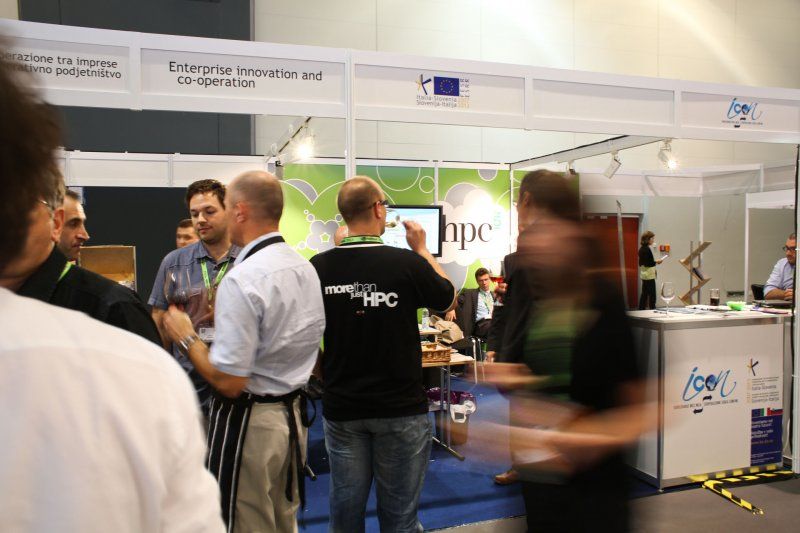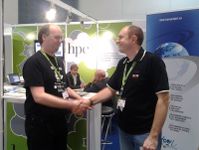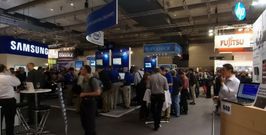Arctur exhibits more than just HPC
Arctur was on hand at this years ISC conference to present their infrastructure, services and more than just HPC. In a conference dominated by the the world's largest firms from the field of HPC, Arctur was able to generate significant interest with their innovative solutions and dedication to excellent service provisioning.
Tomi Ilijaš, CEO of Arctur, was very pleased with the traffic at the booth and the number of connections established at ISC'12. "This conference has opened up a host of new opportunities for our company," he noted. "ISC is an amazing event, providing a platform to connect with various users and discover solutions for their HPC challenges. OEMs and ISVs were also present to discuss existing and future HPC related issues and trends as well as avenues for collaboration.”
Numerous HPC users were also drawn to Arctur's booth for a chance to win 10000 CPU-core-hours of compute time on Arctur-1 supercomputer. Ruben Spaans from the Department of Computer and Informative Science at the Norwegian Univeristy of Science and Technology was the lucky winner of the raffle draw and will now be able to tryout first hand how capable Arctur-1 really is.
At this year’s conference, the new Top 500 list was released with over 160 new entries, including the new Sequoia IBM BlueGene/Q system took the top spot on the list with an impressive 16.32 petaflops on the Linpack benchmark using almost 1.6 million cores.
The importance of Exascale systems (first is expected in 2019) was addressed at ISC’12 with various sessions and discussions regarding how these will be achieved. While there is some consensus as to how they will be built (Multi-processors, GP-GPUs, energy efficient processors), significant effort will be required to discover how to program effectively, reduce power usage and learn what will be attainable with such systems.
Development of hardware and software has traditionally been performed independently, but recently people have begun to recognize the need for “co-design” of systems. In order to increase the efficiency of future supercomputers and their software, hardware and software providers will need to intensify collaborations between each other and increase the level of involvement of end users in order to develop solutions that address their needs.
Attendance to the conference was also made possible thanks to the co-funding by the project iCON funded by the EU Cross-border Cooperation Programme Italy-Slovenia.
Other news
Empowering young innovators: Arctur guides students in solving engineering challenges with artificial intelligence at the EESTech Challenge
Arctur, a leading high-tech company, recognizes the pivotal role of collaboration between students and enterprises in driving innovation and fostering talent development.
Arctur Presents Cutting-Edge Research and Innovation in Healthcare by Leveraging Artificial Intelligence
As a significant component of the symposium, Arctur's research engineer, Samo Eržen, presented two groundbreaking R&D projects within the medical field where Arctur is playing a significant role. Both...
Event Revolutionizing Medicine and Healthcare: The Power of HPC, AI, and ML for Advanced Medical Solutions Brought Valuable Insights into Innovations
On Tuesday, February 27th, an online event titled "Revolutionizing Medicine and Healthcare: The Power of HPC, AI, and ML for Advanced Medical Solutions" convened, targeting researchers and industry...




